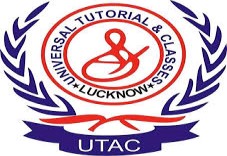All the basic info about the Physics Aptitude Test that you need to know – explained by the PAT tutors
The PAT’s importance cannot be overstated .The leading UK universities, including Oxford and Cambridge, use Physics Aptitude Test to assess the enrollee’s knowledge for a number of natural science subjects – and there is no way around it. Considering this, it is no surprise that the demand for PAT tutoring is skyrocketing, and the services of the PAT tutor are consistently in high demand.
However, we at Oxbridgemind.co.uk have noticed that a lot of people that are searching for a tutor in PAT have a lot of gaps in their knowledge about what this test is. Thus, the idea for this article was born. What is the Physics Admission Test? Why do you have to sit it? Get your PAT 101 here!
The simplest PAT Basics
What is the PAT?
The Physics Aptitude Test (PAT) is a subject-specific Admissions test that is focused on the natural exact theoretical sciences. PAT is by design taken by those enrollees who apply to Physics, Engineering and Material Science courses. Additionally, if the enrollee wants to apply for the joint course (Physics and X, for example, Physics and Philosophy), he will also be obliged to complete the PAT.
The PAT is tailored around the first year of A-level qualification of Maths and Physics and covers similar knowledge to the GCSE syllabus. Indeed, if you want to fill in the blank spots of your Physics knowledge while preparing for PAT, your best bet first would be to go through the PAT syllabus.
With Syllabus though, simply knowing the content is only halfway. A distinctive feature of the PAT is that it tests your ability to apply theoretical knowledge in unusual tasks. This is also the reason why it is important to go through the past papers when ensuring the best PAT result possible.
Why does an enrollee have to complete the PAT?
You may think that the PAT exists specifically to assess the enrollee’s Maths and Physics skills, but that would only be half the truth – after all, these skills are also evaluated by the A-levels and other high school qualifications tests.










Like what you read? Give author a thumbs up?
Bookmark this article to read later, drop a remark in comment section and share with your friends..